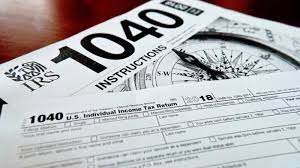As tax season approaches in 2024, many individuals eagerly await their tax refunds. However, it’s crucial to make wise financial decisions to ensure the refund contributes positively to your overall financial well-being. Here are five things to avoid doing with your tax refund this year.

Wise Financial Decisions: 5 Things Not to Do With Your 2024 Tax Return
1. Avoid Splurging on Unnecessary Purchases: Prioritize Needs Over Wants
Receiving a lump sum of money can be tempting, but it’s essential to resist the urge to splurge on non-essential items. While treating yourself is acceptable, prioritizing needs over wants ensures your tax refund serves a practical purpose. Consider addressing outstanding bills, building an emergency fund, or tackling high-interest debt to secure your financial foundation.
2. Steer Clear of Impulse Investing: Opt for Strategic Financial Growth
Investing can be an attractive option, but avoid making hasty decisions based on impulses. Instead of chasing short-term gains, focus on strategic investments aligned with your financial goals. Consult with a financial advisor to explore avenues that offer sustainable growth and contribute to your long-term financial success.
3. Don’t Overlook Debt Repayment: Prioritize High-Interest Debt Reduction
If you have outstanding debts, allocating a portion of your tax refund towards repayment is a prudent move. Prioritize high-interest debts such as credit cards or personal loans to minimize long-term financial burdens. Reducing debt not only improves your financial standing but also saves money on interest payments in the future.
4. Resist Lifestyle Inflation: Maintain Financial Discipline
A sudden influx of funds may lead to lifestyle inflation, wherein spending habits adjust to match increased income. Resist the temptation to elevate your lifestyle unnecessarily. Instead, consider allocating your tax refund towards long-term financial goals, such as homeownership, education, or retirement, fostering financial discipline and stability.
5. Avoid Neglecting Savings: Strengthen Your Financial Safety Net
Building or reinforcing your savings should be a priority when deciding what to do with your tax refund. Consider contributing to an emergency fund to navigate unforeseen expenses without jeopardizing your financial stability. A robust savings cushion provides peace of mind and ensures you’re well-prepared for life’s unexpected challenges.
Conclusion: Strategic Financial Choices for Long-Term Stability
In conclusion, making intentional and strategic financial decisions with your tax refund can significantly impact your long-term financial stability. Prioritizing needs, smart investing, debt reduction, maintaining financial discipline, and strengthening your savings are key components of a well-rounded financial plan. By avoiding impulsive choices, you can leverage your tax refund to create a solid foundation for your financial future.
















